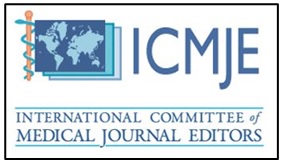EL ROL DE LA DIETA, ALIMENTOS Y NUTRIENTES EN LA PREVENCIÓN DE ENFERMEDADES
Palabras clave:
Dieta, Alimentos, Nutrientes, Prevención de enfermedades, Diet, Food, Nutrients, Diseases preventionResumen
En la actualidad es del consenso la estrecha relación que existe entre la alimentación y la salud, sin embargo, es frecuente observar un patrón dietético con malos hábitos alimentarios en casi toda la población, así como de consumidores con la necesidad de regímenes especiales muy desatendidos. En este sentido es prioritario desarrollar estrategias y acciones que correspondan a los niveles de desarrollo económico y las costumbres locales, donde se refleje la importancia de las modificaciones de estilos de vida relacionados con la dieta, para prevenir y controlar enfermedades. En este artículo se compila y discute la importancia de la deta, alimentos y nutrientes en la prevención de enfermedades.Descargas
Citas
REFERENCIAS
ADA American Dietetic Association. Position Functional Foods. J. Am. Diet. Assoc. 1999; 99: 1278-1285.
Alvídrez-Morales A, González-Martínez BE, Jiménez-Salas Z. Tendencias en la producción de alimentos: alimentos funcionales. RESPYN- 3 (3)www.medigraphic.org.mx
Arai S. Studies on functional foods in Japan. State of the art. Biosci Biotech Biochem. 1996; 60: 9-15.
Athyros VG, Kakafika AI, Papageorgiou AA, Tziomalos K, Peletidou A, Vosikis C, et. al. Effect of a plant stanol ester-containing spread, placebo spread, or Mediterranean
diet on estimated cardiovascular risk and lipid, inflammatory and haemostatic factors.
Nutr Metab Cardiovasc Dis. 2011; 21(3):213-21
Barceloux D. Selenium. Clin Toxicol. 1999; 37: 145-72.
Beydoun M A, Wang Y. Do nutrition knowledge and beliefs modify the association of socioeconomic factors and diet quality among US adults? Prev Med. 2008; 46(2): 145-153.
Carter SJ, Roberts MB, Salter J. Eaton CB. Relationship between Mediterranean Diet
Score and atherothrombotic risk: Findings from the Third National healthand Nutrition
Examination Survey (NHANES III), 1988–1994. Atherosclerosis. 2010 Jun; 210(2):630-6.
Carter TL, Morse KL, Giraud DW, Driskell J A. Few differences in diet and health behaviors and perceptions were observed in adult urban Native American Indians by tribal association, gender, and age grouping. Nutr Res. 2008; 28(12): 834-841.
Case C, Lares M, Pérez E, Palma A, Brito S, Schroeder M. Blood glucose and serum lipid levels in the Venezuelan Warao tribe: possible relationship with moriche fruit (Mauritia flexuosa L) intake. Nutr Metab Cardiovasc Dis. 2007; 17: e1-e2
Champagne CP, Fustier P. Microencapsulation for the improved delivery of bioactive
compounds into foods. Curr Opin Biotechnol. 2007;18:184–190
Contaldo F, Pasanisi F, Mancini M. Beyond. The traditional interpretation of Mediterranean diet. Nutr Metab Cardiovasc Dis. 2003; 13(3): 117-119.
Desai KGH, Park HJ. Recent developments in microencapsulation of food ingredients.
Drying Technol. 2005; 23: 1361.
FAO. Norma general para el etiquetado y declaración de propiedades de alimentos
pre-envasados para regímenes especiales. 46 CODEX STAN 146-1985. 2008 [Consultado
ene.]. Disponible en : http://www.fao.org/DOCREP/005/Y2770S/y2770s04.htm.
Guitard-Sein-Echaluce L, Torres-Puig-Gros J, Jürschik-Giménez MP, Mirada-Masip G,
Rius-Tormo P, Torner-Benet MT. Factores de riesgo cardiovascular, conocimientos y
actitudes acerca de la alimentación. Enferm Clín. 2006;16 (2):62-68.
Haglin L. The nutrient density of present-day and traditional diets and their health aspects: the samiand lumberjack families living in rural areas of northwestern Sweden. Int J Circumpolar Health. 1999; 58: 30-43.
Hamer M, Mishra GD. Dietary patterns and cardiovascular risk markers in the UK Low
Income Diet and Nutrition Survey. Nutr Metab Cardiovasc Dis. 2010; 20 (7):491-492.
Jones PJ. Clinical nutrition: 7 Functional foods – more than just nutrition. Can Med Assoc J. 2002; 166 (12): 1555.
Kromann N, Green A. Epidemiological studies in the Upernavik district, Greenland.
Incidence of some chronic diseases 1950-1974. Acta Med Scand. 1980; 208: 401-6.
Kuhnlein HV, Chan HM, Leggee D, Barthet V. Macronutrient, mineral and fatty acid
composition of Canadian Artic traditional food. J Food Comp Analysis. 2002; 15: 545-
Kuhnlein HV. Change in the use of traditional foods by the Nuxalk Native people of British Columbia. Ecol Food Nutr. 1992; 27: 259-82.
Lares M, Pérez E, Schroeder M, Gestne A, Case C, et. al. Biochemical and Anthropometric Markers, Metabolic Syndrome and Main Dietary Habits of a Waraos Population Sample. Food Nutr Sci. 2011b; 2(30)
Lares M, Pérez E, Schroeder M, Brito S, Hernández P, Mata C. Evaluación y comparación de la conducta alimentaria de profesionales de la salud en dos centros
hospitalarios. Arch Venez Farmacol Ter. 2011; 30(4):67-71
MacMillan DB. Food supply of the Smith Sound Eskimos. A story of primitive life
maintained on the natural resources of a frozen Arctic land and sea. Am Mus Nat Hist
J. 1918; 18: 161-76.
Michael HN. Lieutenant Zagoskin’s Travels in Russian America 1842-1844. Translation
from Russian sources. Toronto, Canada: University of Toronto Press, 1967. Vol. 7.
Mouratoff GJ, Carroll NV, Scott EM. Diabetes mellitus in Athabaskan Indians in Alaska. Diabetes. 1969; 18: 29-32.
Mouratoff GJ, Carroll NV, Scott EM. Diabetes mellitus in Eskimos. JAMA. 1967; 199:107-12.
Mouratoff GJ, Scott EM. Diabetes mellitus in Eskimos after a decade. JAMA. 1973; 226: 1345-6.
Moyad MA. The Optimal Male Health Diet and Dietary Supplement Program. Urol Clin
North Am. 2012; 39(1): 89-107.
Nilsen H, Utsi E, Bønaa KH. Dietary and nutrient intake of a Sami population living
in traditional reindeer herding areas in north Norway: comparisons with a group of
Norwegians. Int J Circumpolar Health. 1999; 58:120-33.
Nobmann ED, Mamleeva FR, Rodigina TA. A preliminary comparison of nutrient intake of Siberian and Chukotka and Alaska Natives. In: Postl BD,Gilbert P, Goodwill J, Moffatt MEK, O’Neil JD, Sarsfield PA, Young TK, Eds. Circumpolar Health 90, Proceedings of the 8th International Congress on Circumpolar Health, Winnipeg, Manitoba, Canada,
University of Manitoba Press, 1990. p. 752-755.
Nobmann ED, Lanier AP. Dietary intake among Alaska native women resident of Anchorage, Alaska. Int J Circumpolar Health. 2001; 60: 123-37.
Norma Oficial Mexicana NOM-086-SSA1-1994. Bienes y servicios. Alimentos y
bebidas no alcohólicas con modificaciones en su composición. Especificaciones
nutrimentales.
Palou A, Serra F. Perspectivas europeas sobre alimentos funcionales. Alimentación,
Nutr Salud. 2000; 7(3): 76-90.
Pedersen HS, Mortensen SA, Rohde M, et al. High serum coenzyme Q10, positively
correlated with age, selenium and cholesterol, in Inuit of Greenland. A pilot study. Biofactors 1999; 9: 319-323
Pérez-López FR, Chedraui P, Haya J, Cuadros JL. Effects of the Mediterranean
diet on longevity and age-related morbid conditions. Maturitas. 2009; 64(2): 67-79.
Ringstad J, Aaseth J, Johnsen K, Utsi E, Thomassen Y. High serum selenium
concentrations in reindeer breeding Lappish men. Arct Med Res. 1991; 50:103-6.
Ros E. Dieta mediterránea y enfermedad cardiovascular. Hipertensión. 2008; 25, (1):
-15
Ruidavets JB, Teissedre PL, Ferriéres J, Carando S, Bougard G, Cabanis JC. Catechin
in the Mediterranean diet: vegetable, fruit or wine? Atherosclerosis. 2000; 153, (1): 107-117.
Schroeder M, Pérez E, Lares M, Brito S, Cira L. A review: Association of Preventable Medical Conditions, Healthy Nutrition, the Ingestion of Psychotropic Medication and People who suffer from Severe Mental Illnesses. Arch Venez Farmacol Ter. 2010; 29(2):20-25
Scott EM, Griffith IV. Diabetes mellitus in Eskimos. Metabolism. 1957; 6: 320-5.
Sibbel A. The sustainability of functional foods. Soc Sci Med. 2007; 64: 554–561.
Simopoulos AP. Evolutionary aspects of omega-3 fatty acids in the food supply.
Prostaglandins Leukot Essent Fatty Acids. 1999; 60(5-6):421–9.
Slimko ML, Mensah GA. The Role of diets, Food, and Nutrients in the Prevention and
Control of Hypertension and Prehypertension. Cardiol Clin. 2010; 28(4): 665-674.
Thouez JP, Ekoe JM, Foggin PM, et al. Obesity, hypertension, hyperuricemia and
diabetes mellitus among the Cree and Inuit of northern Quebec. Arctic Med Res. 1990;
:180-8.
West KM. Diabetes in American Indians and other native populations of the New World. Diabetes. 1974; 23: 841-55.
Young TK, Schraer CD, Shubnikoff EV, Szathmary EJE, Nikitin YP. Prevalence of
diagnosed diabetes in circumpolar indigenous populations. Int J Epidemiol. 1992; 21: 730-6.
Descargas
Cómo citar
Número
Sección
Licencia
Usted es libre de:
- Compartir — copiar y redistribuir el material en cualquier medio o formato
- Adaptar — remezclar, transformar y construir a partir del material
- para cualquier propósito, incluso comercialmente.
Bajo los siguientes términos:
-
Atribución — Usted debe dar crédito de manera adecuada, brindar un enlace a la licencia, e indicar si se han realizado cambios. Puede hacerlo en cualquier forma razonable, pero no de forma tal que sugiera que usted o su uso tienen el apoyo de la licenciante.
- No hay restricciones adicionales — No puede aplicar términos legales ni medidas tecnológicas que restrinjan legalmente a otras a hacer cualquier uso permitido por la licencia.














